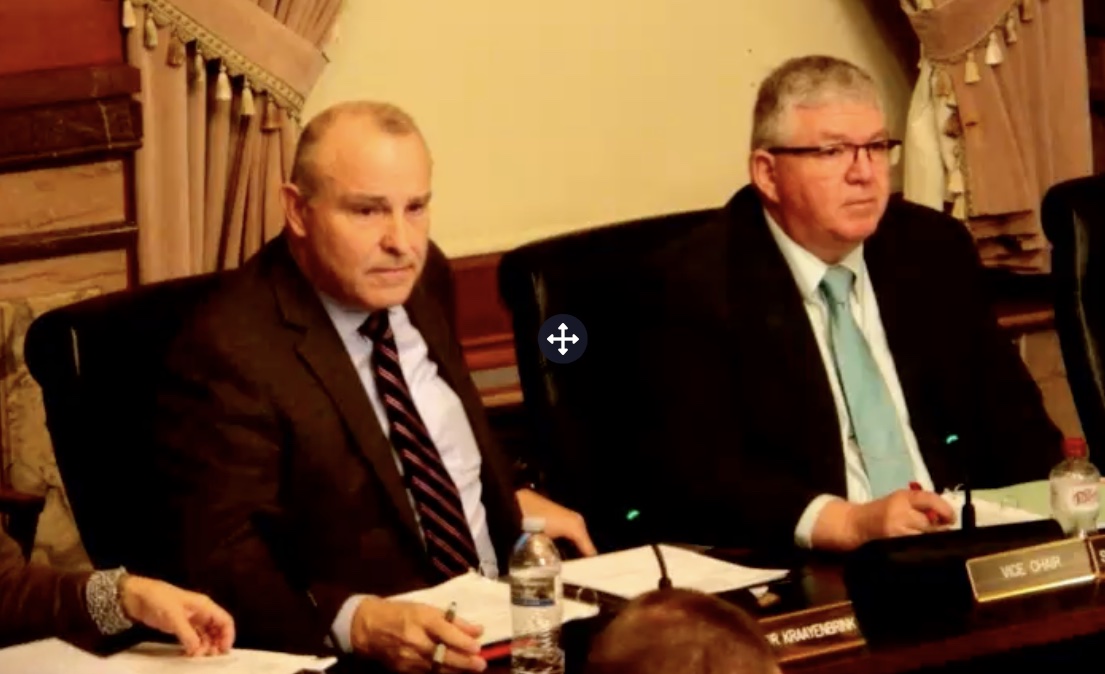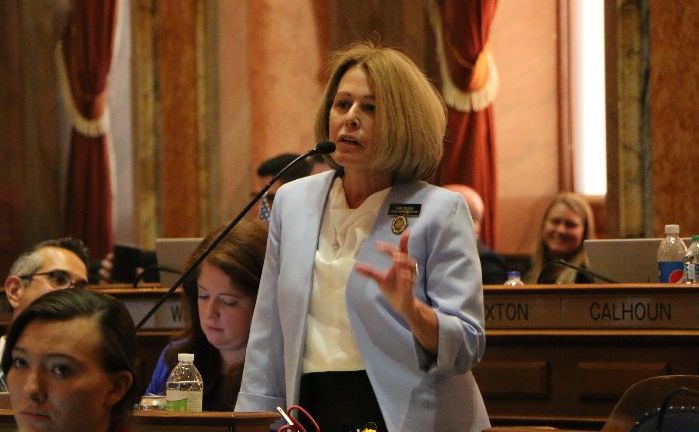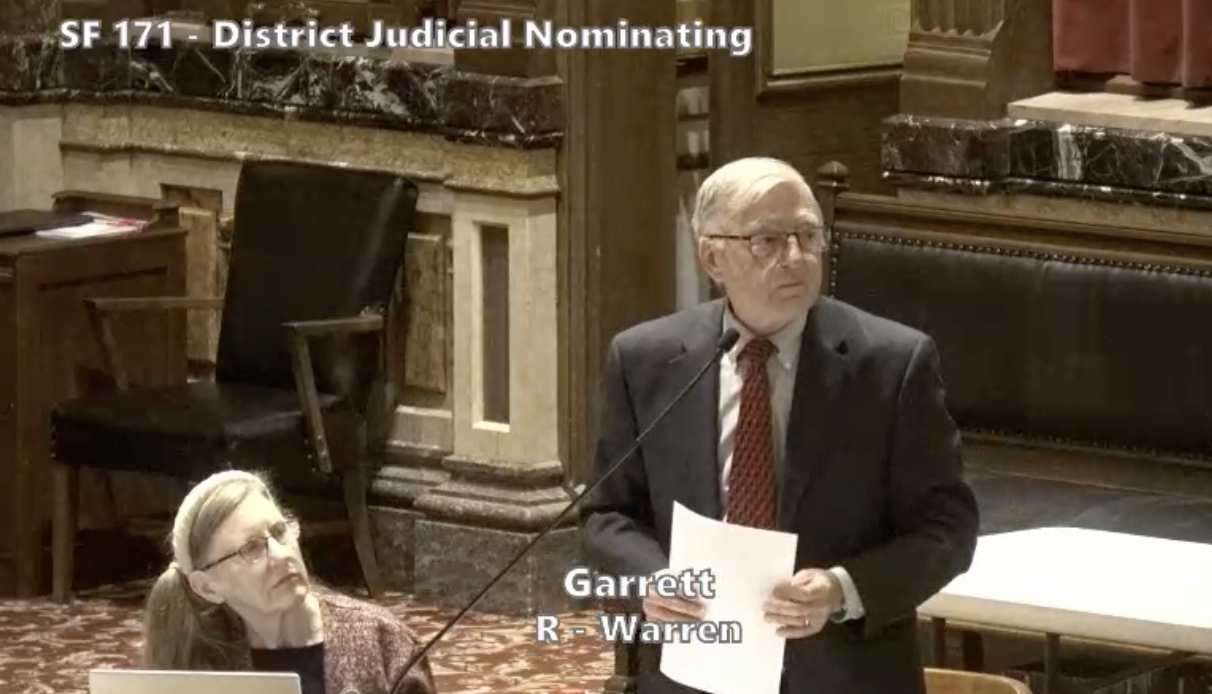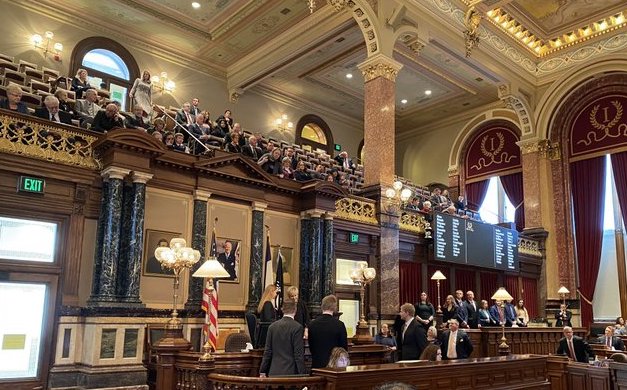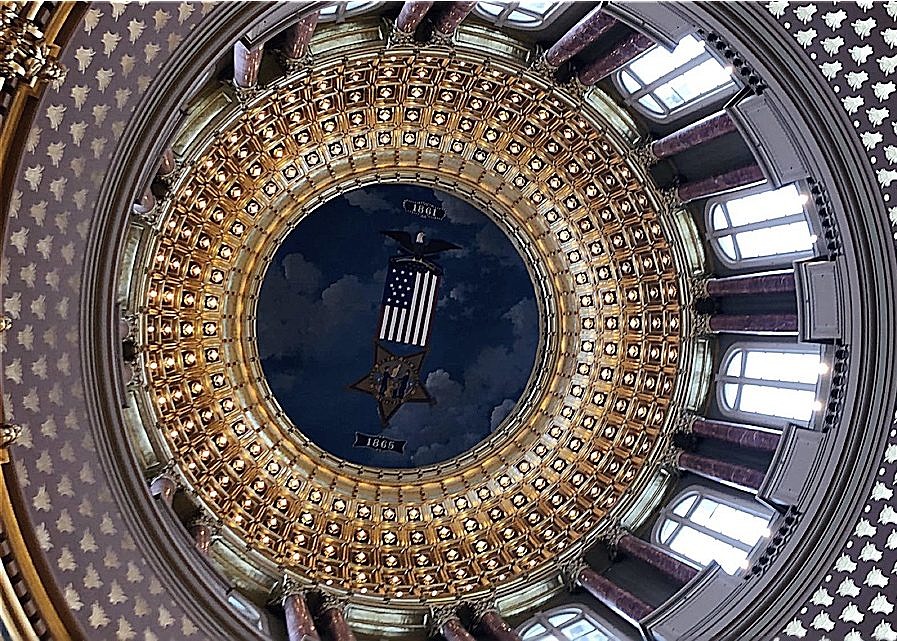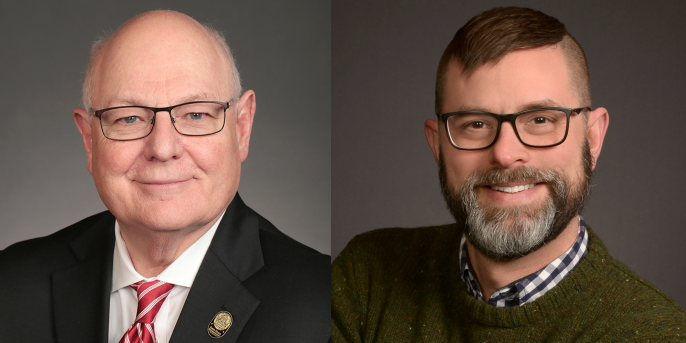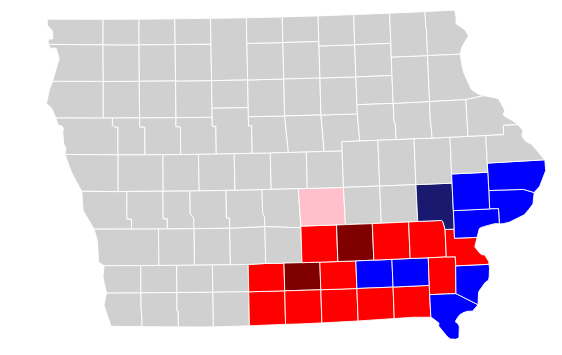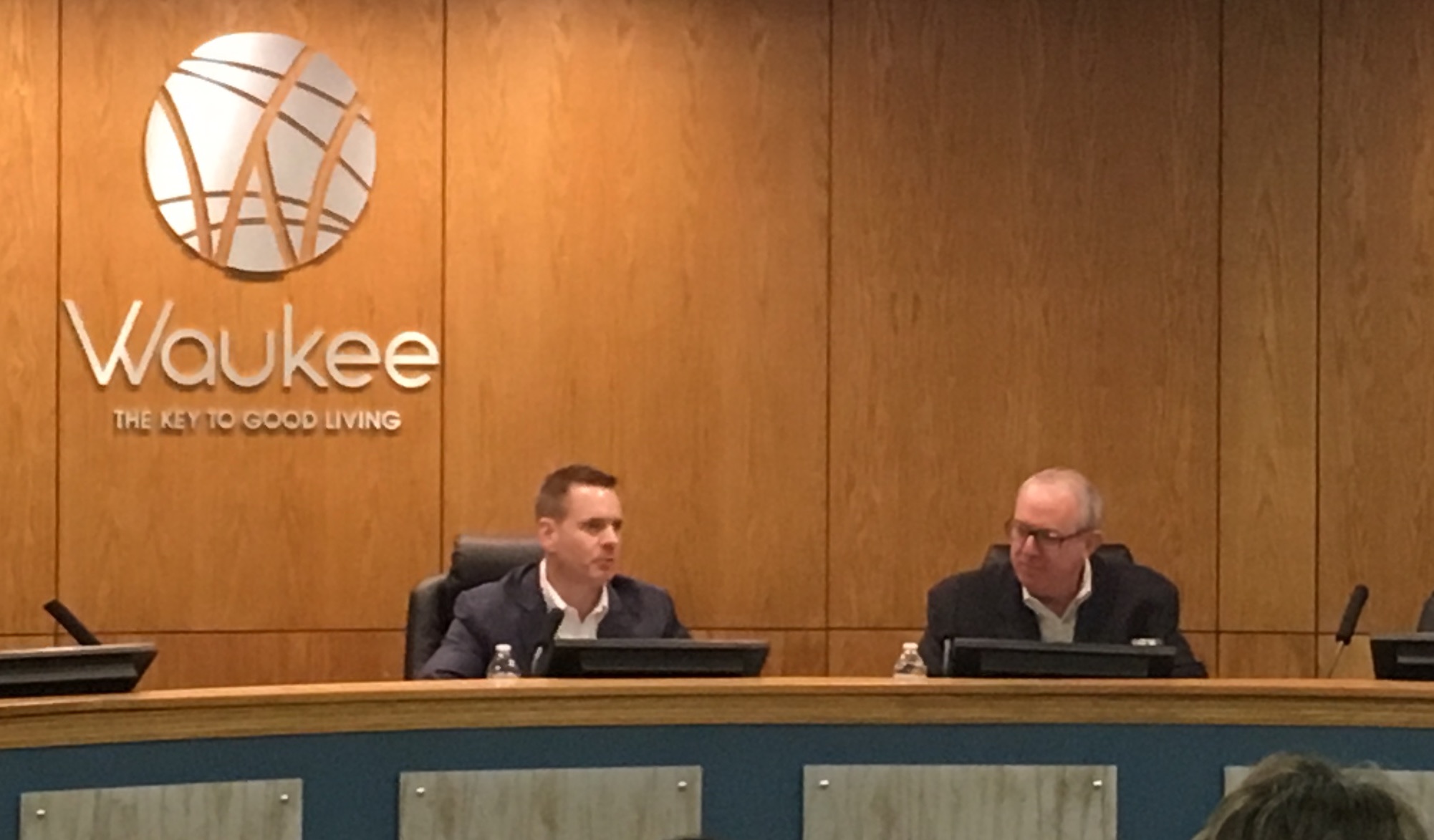State Senator Mark Chelgren is looking “seriously” at running against five-term Representative Dave Loebsack in Iowa’s second Congressional district, he told Bleeding Heartland yesterday. He said he has no timeline for making a decision. If he runs for Congress, his key issues would include:
• The economy. Chelgren said our country’s manufacturing base “has been deteriorating over the past 50 years.” He added that he doesn’t support how the U.S. has negotiated trade agreements. Asked whether he would support giving the White House trade promotion authority, which Congress passed last month, Chelgren replied, “Hell no.” While the economy and the world have “changed dramatically,” American policy-makers “have done almost nothing to upgrade our infrastructure.” Chelgren clarified that he was not talking primarily about 20th-century infrastructure like roads and railroads but about 21st-century needs such as high-speed internet access “to every community.” Meanwhile, the federal government is keeping interest rates “artificially low” and “diluting the strength of the economy” by printing money.
• Education. Chelgren believes “our education system is massively broken.” It “was designed to create assembly-line workers” or people working in office cubicles, rather than to prepare students for the modern economy.
• Long-range planning. “We have politicians at the state and federal level that think in two-year increments,” whereas we need “better vision” looking five to ten years ahead, according to Chelgren.
By this point in the 2012 election cycle, three Republicans had announced plans to run against Loebsack. Not only has no GOP candidate launched a campaign in IA-02 yet, I haven’t heard rumors about any prospective candidates other than Chelgren. Loebsack’s last general-election opponent, Marionette Miller-Meeks, is unlikely to run again after losing to Loebsack three times, twice in Republican wave years (2010 and 2014). Former State Representative Mark Lofgren, who lost last year’s GOP primary to Miller-Meeks, is running for Iowa Senate district 46 in 2016. Chelgren doesn’t need to choose between serving in the state legislative and running for Congress, because he was just re-elected to a second four-year term and won’t be on the ballot in Iowa Senate district 41 again until 2018.
IA-02 leans Democratic with a partisan voter index of D+4. According to the latest figures from the Iowa Secretary of State’s Office, the 24 counties in the district contain 160,562 active registered Democrats, 136,215 Republicans, and 182,047 no-party voters. The last time Loebsack was on the ballot in a presidential year, he defeated John Archer by a comfortable margin of 55.6 percent to 42.5 percent.





